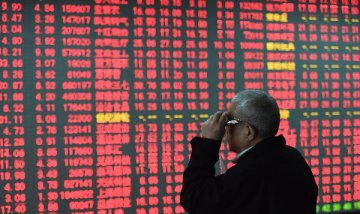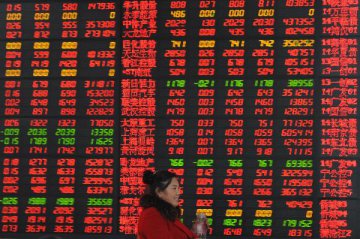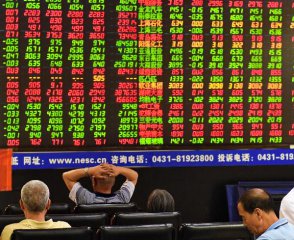
Overseas investors can soon own more Chinese stocks -- the trouble is they don’t seem to want them.
Foreigners are dumping mainland-listed shares at a record pace, just as MSCI Inc. prepares to expand their weighting in its benchmark indexes. Already this month, 17.4 billion yuan ($2.6 billion) of A shares have been sold through trading links with Hong Kong, putting May well on track to surpass the 18 billion yuan outflow in April.
Chinese stocks remain some of the best performing in world this year, yet more than $1 trillion has been wiped from the country’s equity markets in just three weeks as the trade dispute with the U.S. returned to center stage. Concern that Beijing may pare back stimulus plans also weighed: the Shanghai Composite Index has dropped 10% from an April peak.
“Renewed fears of further trade escalation had invited foreign investors to have second thoughts,” said Jingyi Pan, a market strategist at IG Asia Pte Ltd. in Singapore.
Chinese stocks rebounded Friday despite the U.S. going through with its threat to raise tariffs on more than $200 billion of goods. The hike -- put into effect just after noon local time -- initially weighed on shares, before state-backed funds stepped in to prop up the market, according to people familiar with the matter. The Shanghai gauge finished with a 3.1% gain, its biggest daily rally since March 29.
MSCI will increase the inclusion factor of large-cap A shares to 10% from 5% and also add stocks listed on the tech-heavy ChiNext board on May 29. It will announce the changes on Monday. The weightings are set to be increased again later this year.
The move will draw foreign inflows from index-tracking funds, though that doesn’t guarantee a boost for the market: the initial inclusion of A shares last year did little to stop the worst rout in a decade. Inflows from the inclusion are minor compared to the size of China’s market, which is dominated by retail investors.
Recent volatility in Chinese shares won’t have an impact on MSCI’s plans to raise the weighting of large-caps this year, according to Zhen Wei, director of China research at MSCI Inc. However, it could mean a change in the number of mid-caps that are included in the November review, he said in an interview in Singapore on Thursday.
“If A shares underperform other emerging markets on relative terms, it will be reflected in market weight,” and vice versa, he said.
Source: Bloomberg























Latest comments